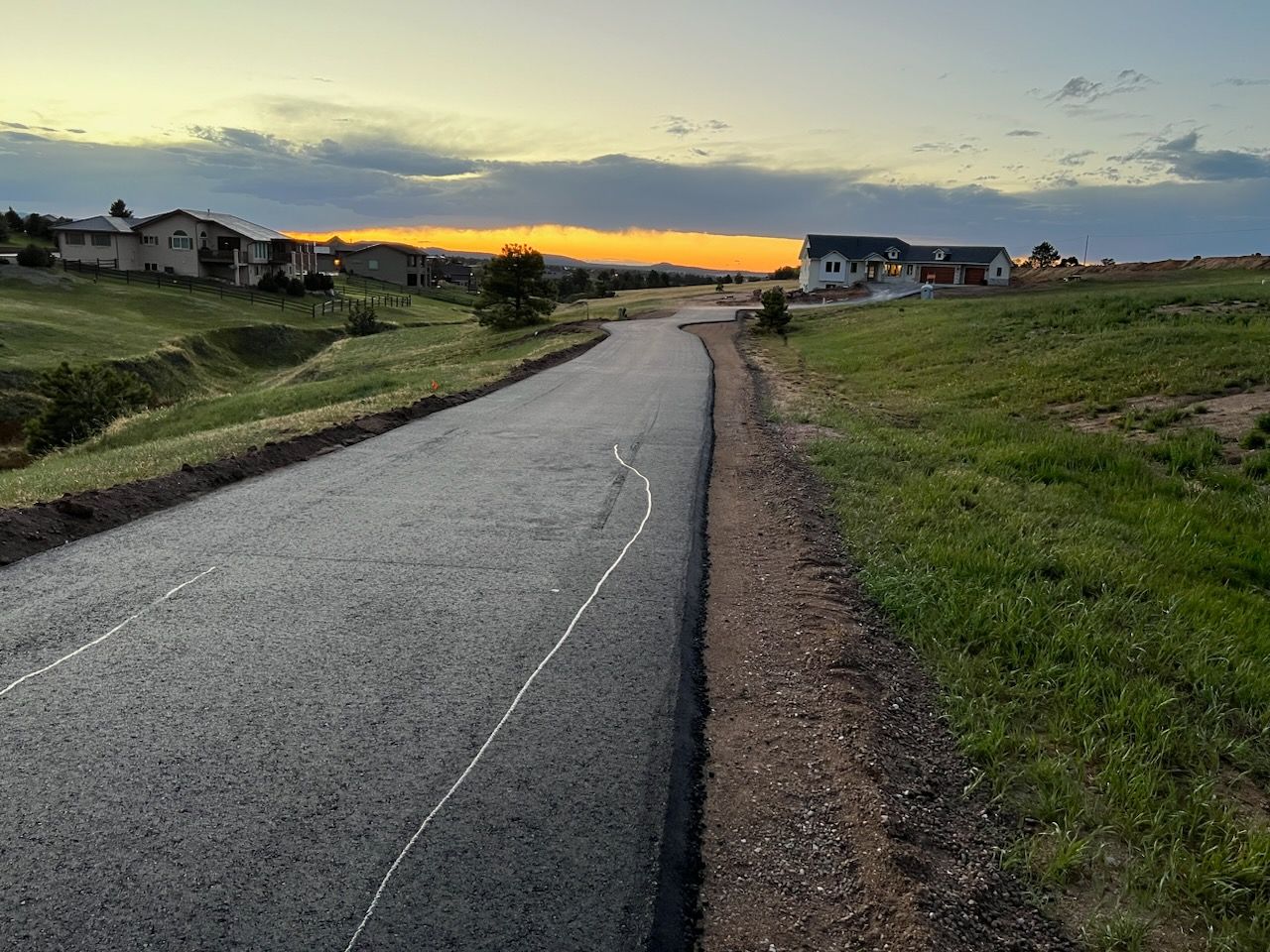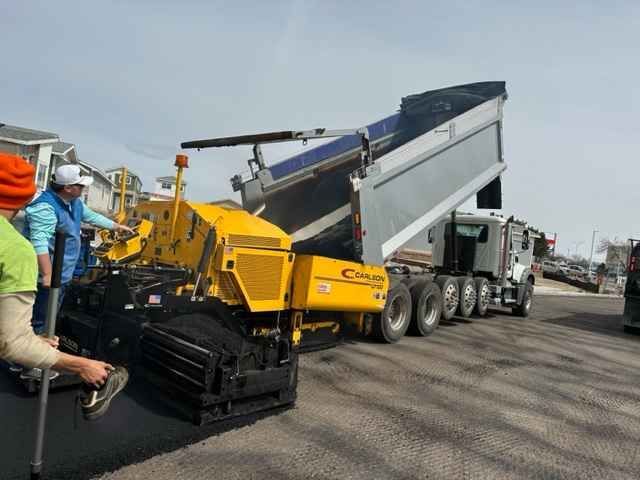Winterizing Your Asphalt Driveway: Tips for Snow and Ice Management
Winter can be a beautiful season, but it can also bring challenges, especially when it comes to maintaining your asphalt driveway. Snow and ice can take a toll on your driveway's surface, and it's essential to be prepared for winter's arrival. In this blog post, we'll provide homeowners with valuable tips on how to winterize their asphalt driveways and effectively manage snow and ice during the colder months. By following these strategies, you can protect your investment and ensure the safety of your property.

1. Pre-Winter Inspection
Before the first snowflake falls, it's a good practice to inspect your asphalt driveway for any pre-existing damage. Look for cracks, holes, or areas of deterioration. Addressing these issues before winter arrives can prevent them from worsening due to freeze-thaw cycles.
2. Seal Coating
Consider applying a fresh coat of sealant to your asphalt driveway before winter. Seal coating acts as a protective barrier, preventing moisture from seeping into the asphalt and causing damage. It also provides an added layer of defense against snow, ice, and the chemicals used for de-icing.
3. Snow Removal Equipment
Invest in the right snow removal equipment. A good quality snow shovel, snow blower, or plow can make the task of removing snow from your driveway much more manageable. Ensure your equipment is in good working condition before the first snowfall.
4. Use Snow Melting Products Sparingly
While salt and other snow melting products can be effective, excessive use can harm your asphalt driveway. To minimize damage, use these products sparingly and follow the manufacturer's guidelines for application. Consider environmentally friendly alternatives or sand for traction.
5. Shoveling Techniques
When shoveling snow from your driveway, use the right technique. Push the snow rather than lifting it, which can be less strenuous on your back and reduce the risk of damaging the asphalt surface.
6. Avoid Metal Blades
If you're using a snow blower or plow, avoid metal blades that can scratch or chip the asphalt. Opt for rubber or plastic blades that are less likely to cause damage.
7. Regular Snow Removal
Don't let snow accumulate for too long on your driveway. Regular snow removal helps prevent ice formation and reduces the risk of heavy snow compressing and damaging the asphalt.
8. Repair Damage Promptly
If you notice any damage to your asphalt driveway during the winter, such as cracks or holes, address it promptly. Quick repairs can prevent further deterioration and extend the life of your driveway.
9. Professional Maintenance
Consider scheduling professional maintenance for your asphalt driveway in the spring. A professional can assess the impact of winter weather on your driveway and perform any necessary repairs or resealing.
10. Know When to Call the Experts
In severe cases of winter damage, it's best to consult with asphalt paving professionals. They can assess the extent of the damage and provide expert solutions for repairs, ensuring the long-term health of your driveway.
Conclusion
Winterizing your asphalt driveway and effectively managing snow and ice are essential tasks for homeowners in colder regions. By following these tips, you can protect your driveway from damage and ensure the safety of your property throughout the winter months.
Remember that regular maintenance and proactive measures can significantly extend the lifespan of your asphalt driveway and keep it looking great. If you're unsure about any aspect of winterizing your driveway or need professional assistance, don't hesitate to reach out to experienced asphalt paving experts who can provide guidance and solutions tailored to your needs.
For professional guidance on winterizing your asphalt driveway or addressing winter damage, contact us today. We're here to help you navigate the challenges of winter weather and keep your driveway in top condition.
You might also like
Paving and Driveway Tips and Tricks





